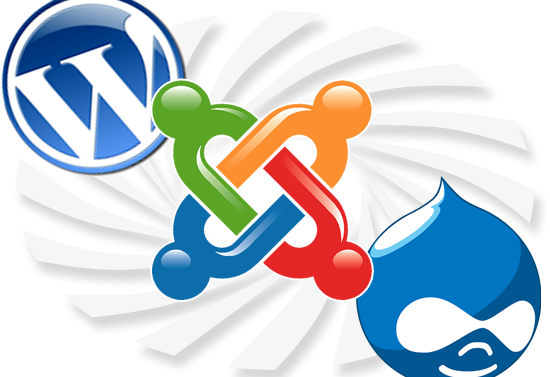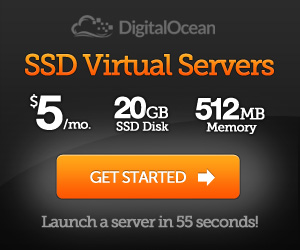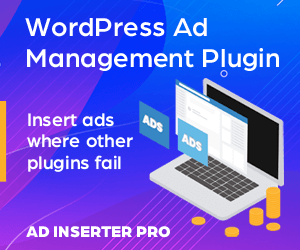
What Are CMS Platforms And How Do You Choose The Right One?
CMS, HTML, Slider November 19, 2014 , by Mark Walker No Comments on What Are CMS Platforms And How Do You Choose The Right One?If you manage the content for your company's website, run another website that is based on news or other heavy content, or if you are a very heavy blogger and need to have a greater degree of control over what you want to publish and when, you may want to invest in a good content management system (CMS). These tools have been developed for webmasters and web professionals alike and their goal is to make sure that your workload is reduced my making administrative tasks easier to manage and complete, so you are able to focus on the things you are really good at.
What Are CMS Platforms?
The CMS or Content Management System is a very popular tool in web development, as it has been designed to ensure managers are able to present the information they have to their online audience in an easy way. A CMS platform is not necessarily web-based, although this does make it easier. The platform can be used both by those who have small needs and also by those whose needs are on a larger scale.
The CMS platform is an application or software package that allows those who have access to it to manage data, content and information that are designed to go on an internet application, online project or website. Each user can be assigned various permissions, so they can only access the sections that are relevant to them. In doing so, people can work together as they link to a central interface. The most popular CMS platforms are available online and they are designed to help those who have news websites, blogs or eCommerce applications.
Managing content is about the creation of the content, including its editing, publishing, reporting, archiving and distribution. It also works collaboratively in terms of information and data. Essentially, it ensures that blogs and websites are always able to remain relevant and current for those who come to the website, making the lives of those who offer that information a lot easier.
There are many different types of CMS programs, which can make things slightly confusing. The CMS platform itself has been developed a long time ago but the concept became well-known when the AIIM (Association for Information and Image Management) became involved and designed their own version. In doing so, they claimed the ECMS (Enterprise Content Management System) and WCMS (Web-based Content Management System) acronyms. As such, the AIIM has made it clearer as to what type of content management each business could need.
Some CMS Platform Myths and Facts
Now that you understand what a CMS platform offers, it is important that you also know some of the myths and facts about these platforms. First of all, having a CMS platform does not mean you no longer need to have programming skills or employ a programmer. This is because while most CMS systems do have user-friendly control panels, they do require some back-end knowledge and programming language if you want to create something really unique or special.
In addition, it is important to understand that you are not guaranteed to be successful just because you have invested in a CMS platform. It is designed to help you and make your life easier, but will only be able to do that if you have worked on your marketing strategy and are able to create high quality content. Without those elements, a CMS is not really able to do anything for you.
How to Select Your CMS Platform
First of all, you need to make sure you can build a true partnership with your CMS. This means it has to offer certain things, which vary depending on your own needs. Some of the things most businesses look for is the level of support, the vision of the platform, the community who uses it, how stable it is and its focus.
Secondly, you need to have a thorough understanding of your own business. Never start looking for a platform or other software until you have a good strategy in place. This means you need to look holistically at how you manage your information practices, what your short and long term goals are and what type of features and functions you need. You must spend some time researching your market and your capabilities first. If you make use of a CMS platform, you do have to make sure that you have the processes and staff to support that. It is about understanding your requirements and your capabilities before you look at a package that is most suitable for those elements.
Thirdly, try to come up with a list of things that matter for your business. Some of the filters you may want to apply include relevant technology, your budget, the functionality for your type of business and the proximity of your partners. Basically, you need to think about your idiosyncratic requirements (such as the ability to run the same platform in different languages at the same time) and your extreme priority requirements. These particular requirements vary from one organization to another and only you can figure these out.
At this point, you should now be ready to create a features matrix to help you evaluate the different platforms that are out there. Making a features matrix is reasonable easy and simply involves creating a spreadsheet with the different requirements you have for a system in your rows and the systems that are available in your columns. Make sure you list your requirements in order of importance and then simply indicate whether or not the individual platforms meet these requirements.
Finally, you need to make a decision based on a usage scenario. Ideally, after you have created and completed your features matrix, you should be left with between three and five possibilities. If possible, you could ask for a demonstration on a real-life scenario for each of these platforms. However, many are not able to offer this, so you may want to consider signing up for a demo account and getting a feel of how it works and whether it does indeed meet your particular needs.
- The Quintessence of Cybersecurity and Stellar IT Support - November 9, 2023
- Choosing the Right Payment Processor for Your Website - March 3, 2022
- Choosing a business management system - June 11, 2020
Related Articles
-
-
Upgrading to WordPress 4.5
May 5, 2016
-
WordPress Plugins
January 26, 2016 -
A Brief Analysis Of The Best Linux Operating Systems
December 19, 2014
-
Fantastic Web Design Tips That Will Help Improve Your Site
December 15, 2014
Latest Reports
-
1 Upgrading to WordPress 4.5
May 5, 2016 -
2 WordPress Plugins
January 26, 2016 -
3 What Are CMS Platforms And How Do You Choose The Right One?
November 19, 2014 -
4 How To Create A Successful Website On A Budget
November 18, 2014
-
1 Choosing the Right Payment Processor for Your Website
March 3, 2022 -
2 How To Write An Excellent Product Review
December 26, 2014 -
3 Fantastic Web Design Tips That Will Help Improve Your Site
December 15, 2014 -
4 Tips You Need To Know About Web Hosting
November 26, 2014 -
5 The Biggest Websites In The World Today
November 23, 2014
-
1 Fantastic Web Design Tips That Will Help Improve Your Site
December 15, 2014 -
2 A Review Of 3 Web Design Software Packages For Beginners
December 5, 2014 -
3 Four Fantastic Tips For Web Development
November 24, 2014 -
4 What Are CMS Platforms And How Do You Choose The Right One?
November 19, 2014 -
5 How To Create A Successful Website On A Budget
November 18, 2014
-
1 Why Does Everybody Love Docker?
November 28, 2014 -
2 Tips You Need To Know About Web Hosting
November 26, 2014 -
3 Clearing postfix mail queue by domain
September 9, 2014 -
4 Linux disk full errors but disk has space
September 9, 2014







Leave a comment
You must be logged in to post a comment.